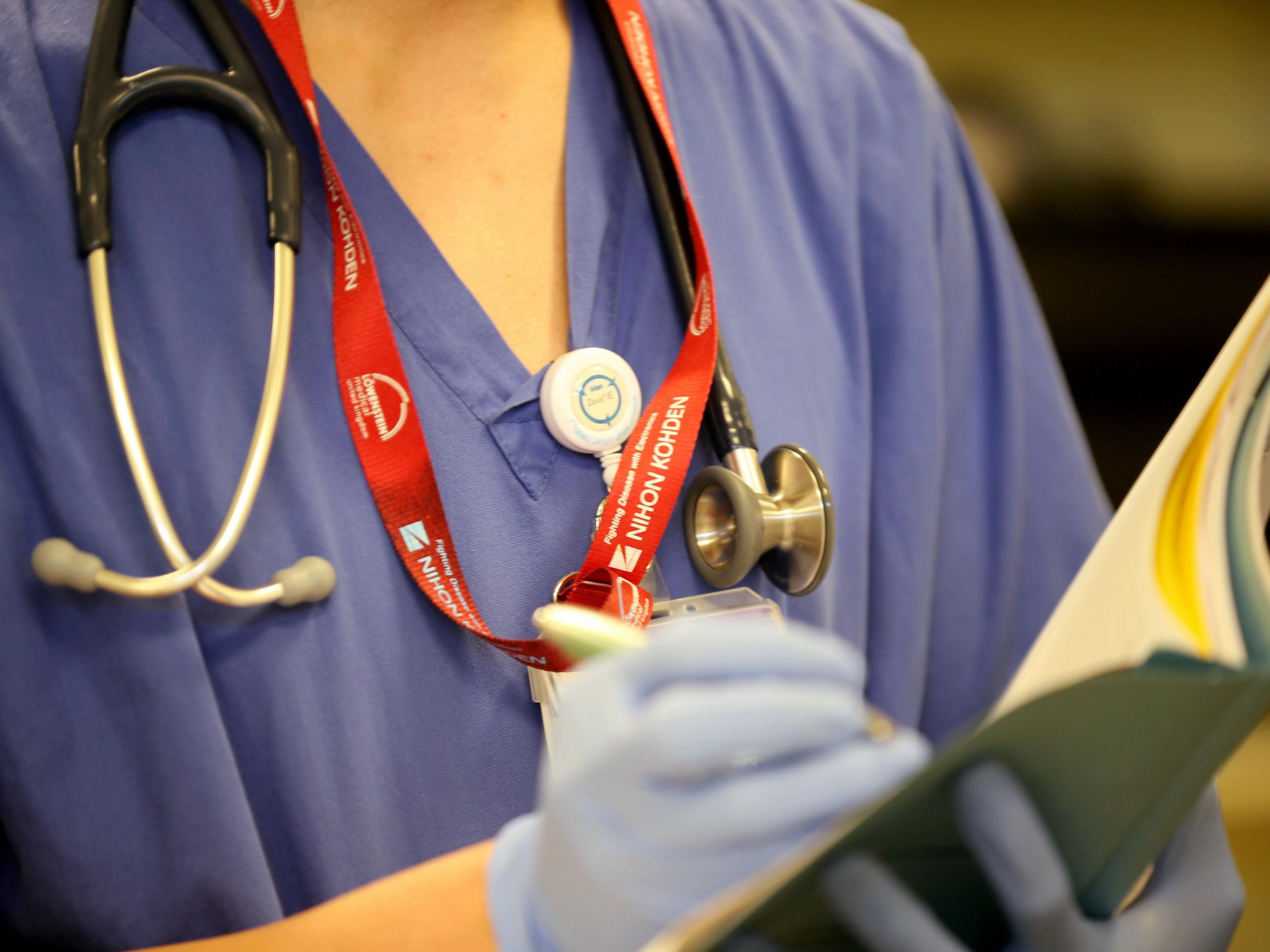How reliant is the NHS on foreign doctors?
Theresa May under pressure to lift cap that stops skilled workers coming to the UK - but what difference would it make?

Your support helps us to tell the story
From reproductive rights to climate change to Big Tech, The Independent is on the ground when the story is developing. Whether it's investigating the financials of Elon Musk's pro-Trump PAC or producing our latest documentary, 'The A Word', which shines a light on the American women fighting for reproductive rights, we know how important it is to parse out the facts from the messaging.
At such a critical moment in US history, we need reporters on the ground. Your donation allows us to keep sending journalists to speak to both sides of the story.
The Independent is trusted by Americans across the entire political spectrum. And unlike many other quality news outlets, we choose not to lock Americans out of our reporting and analysis with paywalls. We believe quality journalism should be available to everyone, paid for by those who can afford it.
Your support makes all the difference.Theresa May is on the verge of lifting an immigration cap that prevents doctors and nurses coming to Britain to work in the NHS, according to reports.
The prime minister has faced pressure from within her Cabinet to act, amid concerns that strict immigration quotas are stopping vacancies in the health service being filled.
Currently, doctors wanting to come to the UK from non-EU countries are affected by a cap on the number of tier 2 visas that can be given out. This type of visa is given to skilled workers, but under government regulations only 20,700 are allowed to be granted each year.
If the quota for each month is met then skilled workers seeking to come to the UK are refused. This has been the case for each of the past six months, leading NHS bosses to warn about a crippling lack of skilled staff, and pressure on the government to lift the cap.
But how many NHS workers come from abroad, and how big a difference would raising the cap make?
1,518 applications for visas by foreign doctors were turned down in the four months to March 2018. This suggests that, if the cap were raised, around 4,500 more doctors could come to the UK each year.
The health service is heavily reliant on staff from overseas.
In total, around 139,000 of the 1.2 million NHS employees are foreign nationals – equating to one in eight (12.5 per cent).
Of these, around 62,000 – or 5.6 per cent of all employees - come from EU countries. 45,000 come from Asia, and 21,000 are from African countries.
The most common nationalities are Indian (18,300), Filipino (15,400), Irish (13,000) and Polish (8,500).
These figures are for all NHS staff, but the changes the government is considering making would relate only to specialist workers - namely doctors.
Among doctors, the proportion of non-British NHS staff is much higher: 26 per cent are foreign nationals.
12 per cent of NHS doctors come from Asia, with two-thirds of this group being either Indian or Pakistani. 10 per cent are from EU countries – most commonly Ireland. A further 3 per cent come from African nations.
The proportion of foreign doctors in the NHS has fallen in recent years amid a tightening of immigration rules. In 2009, 30 per cent of NHS doctors were non-British, but by 2017 that figure had dropped to 26 per cent.
Among nurses – who Jeremy Hunt, the health secretary, also wants exempted from the immigration cap – the proportion of non-British staff is lower.
Only 16 per cent of nurses and health visitors in the NHS are non-British. 7 per cent (21,200) come from EU countries – mostly Ireland, Spain and Portugal. A further 6 per cent are from Asia – the vast majority from India or The Philippines - and another two 2 per cent come from African countries.
Join our commenting forum
Join thought-provoking conversations, follow other Independent readers and see their replies
Comments